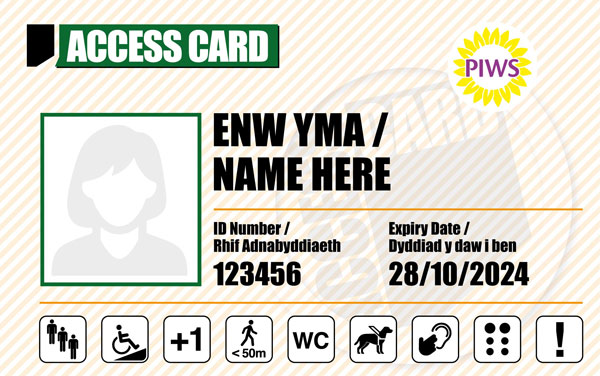‘Disability Passport’ to help disabled people access more UK tourist attractions
 Mental Health therapist watercolour by Learning Disability Today
Mental Health therapist watercolour by Learning Disability Today
Share on social media
A new campaign has been launched to boost awareness and registration of the ‘Access Card’, which translates disabilities or impairments into symbols, highlighting the reasonable adjustments individuals may need.
Dubbed a ‘Disability Passport’, the Access Card informs providers quickly and discreetly about the support the individual needs through a range of symbols, without having to explain personal health problems and other issues out loud.
Accessible tourism is worth an estimated £15 billion per year in the UK
Davina Carey-Evans launched the campaign after spending a “lifetime” visiting leisure attractions, only to realise on arrival they are unsuitable for her autistic son’s needs. Ms Carey-Evans, who is based in Anglesey set up PIWS as a community interest company, which researches accessibility in Wales with the aim of raising awareness and improving access for all.
PIWS has partnered with Nimbus who manage the Access Card in order to inform businesses about the benefits of improving accessibility.
Ms Carey-Evans said: “Accessible tourism is worth an estimated £15 billion per year in the UK alone and yet only 10 per cent of businesses in Wales – if that – are targeting that audience.”
“There’s a fear among businesses of saying they cater for a disability because they don’t want to get it wrong but instead find it easier to do nothing."
She now wants leisure businesses in Wales to do more to ensure people with disabilities have the right support to visit tourist attractions, and notes that if they get it right, they will increase their number of visitors who will continue to return time and time again.
“What we are trying to create with PIWS is an opportunity for businesses to start their journey in a realistic way that they can manage without huge expense and to use the tools we are putting together.
“As they gain that confidence, both PIWS and people with disabilities will constructively support them," she added.
Businesses encouraged to sign up to the scheme
Ms Carey-Evans hopes the campaign will educate hospitality and leisure providers on the variety of impairments and accessibility issues their customers may face, enabling them to make small adjustments to improve the visitor experience Businesses can now sign up to the scheme free of charge and people with disabilities are encouraged to visit places offering the scheme and give constructive feedback.
“If they just accept this card, that’s a beginning and a step in the right direction. It’s giving them the tools and supporting them to support their customers. “This is coming from the ground upwards – from people with disabilities who want everyone to make a difference and to change attitudes," she said.
Read more about PIWS and the Access Card.
 Image: Piws Access card
Image: Piws Access card
The Access Card created in response to frustrations shared by disabled people and a major live music promoter in how disability needs for reasonable adjustments:
- For disabled people, the frustration was in repeatedly sending in personal documents which bore no direct relation to the needs of the individual.
- For the providers, it was frustration in interpreting these documents and the additional admin burden it placed on their staff.
The goal was to produce a single consistent method of communicating between customer and providers, simplifying the process for both.
The card is accepted at major event venues across the UK and beyond, and even more widely taken simply at face value.
The technological development behind the card now means that an unprecedented technical response to disabled peoples’ needs is now possible and a live API allows for online ticket sales (and more) to be genuinely achievable for the first time for disabled people.
There is no cost to using the software. An annual licence agreement regarding certain stipulations around use is necessary.
